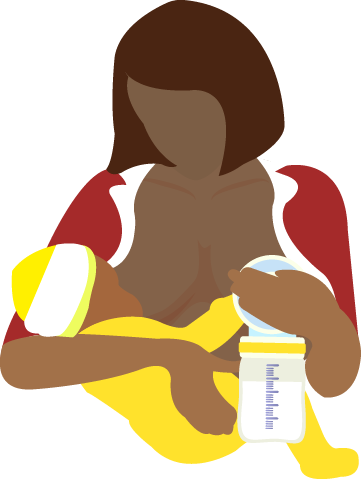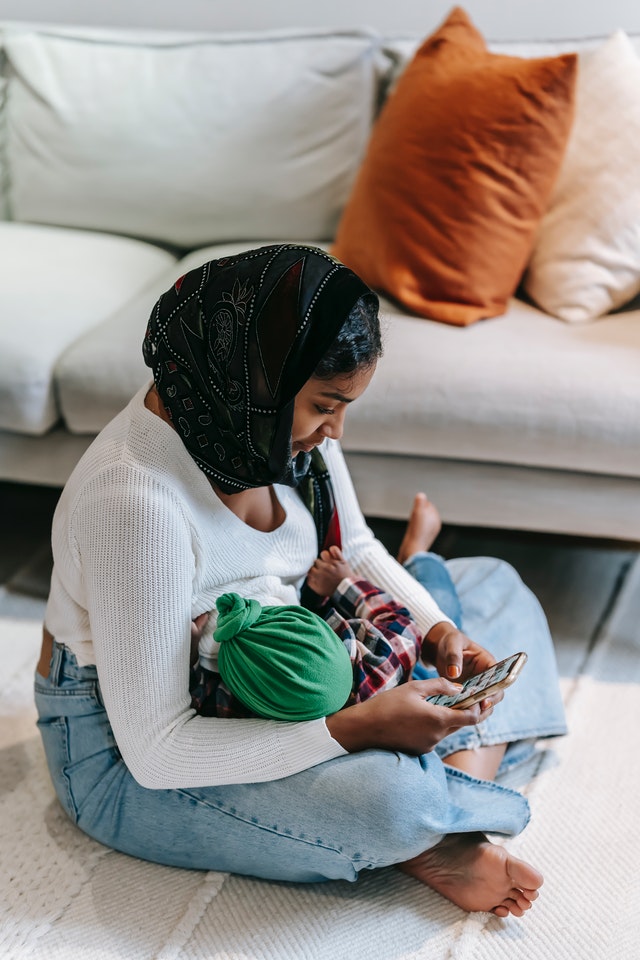UNICEF and WHO recommend: Initiation of breastfeeding within the first hour of life. Exclusive breastfeeding, without any additional food or fluids, not even water, for the first six months. Thereafter children should receive complementary foods with continued breastfeeding up to 2 years of age or beyond.
Whether delivery takes place in a hut in a rural village or a hospital in a major city, putting newborns to the breast within the first hour after birth gives them the best chance to survive, thrive and develop to their full potential.
UNICEF and WHO recommend exclusive breastfeeding for the first six months of life, starting within an hour of birth. Continuing to breastfeed exclusively – without any other food – for the first six months promotes sensory and cognitive development, and protects babies against infectious and chronic diseases.
But mothers cannot be expected to do it alone. Early and exclusive breastfeeding needs to be supported by hospitals and birthing centres, healthcare workers, governments and families. When it comes to supporting breastfeeding from the first hour after childbirth, here’s what works, and what hurts:
What works: Skin-to-skin contact immediately after birth
Immediate skin-to-skin contact helps regulate newborns’ body temperature and exposes them to beneficial bacteria from their mother’s skin. These good bacteria protect babies from infectious diseases and help build their immune systems.
Skin-to-skin contact immediately after birth until the end of the first breastfeeding has many other benefits as well. It has been shown to increase the chances that babies are breastfed, to extend the length of breastfeeding, and also to improve rates of exclusive breastfeeding.
What hurts: Supplemental foods or liquids for newborns
Giving newborns liquids or food other than breastmilk in the first days of life is common in many parts of the world, and is often linked to cultural norms, family practices or hospital policies and procedures that are not based on scientific evidence. These practices vary by country and may include throwing away colostrum – a mother’s “first milk” rich in antibodies – or having a doctor or elder family member give the newborn specific liquids or foods, like formula, sugar water or honey. These practices can delay a baby’s first critical contact with his or her mother.
Source: UNICEF
Link: https://www.unicef.org/stories/breastfeeding-first-hour-birth-what-works-and-what-hurts





2 Comments
Your article helped me a lot, is there any more related content? Thanks! https://accounts.binance.com/zh-TC/register?ref=GJY4VW8W
Yes there a lot of content.